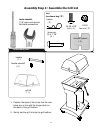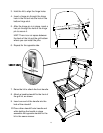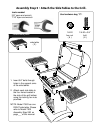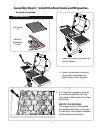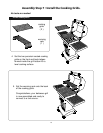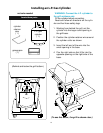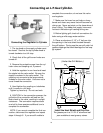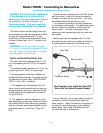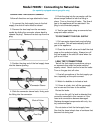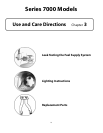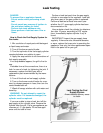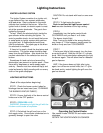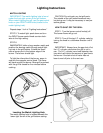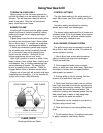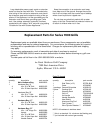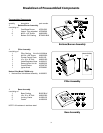Special offers from our partners!

Find Replacement BBQ Parts for 20,308 Models. Repair your BBQ today.
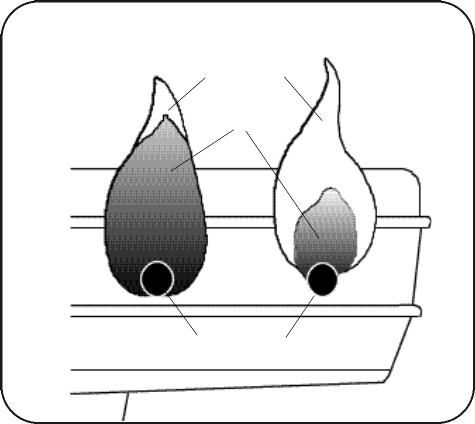
CONTROL SETTINGS
The high flame setting is for quick searing of
meat. Sear foods, then finish cooking on a lower
setting.
A medium setting works best for cooking
steaks, pork chops, and hamburgers.
The lowest setting works well for all roasts and
rotisserie foods. Even thick steaks, when seared
on a high setting first, will have a better texture
and be more juicy cooked on low.
DUAL BURNER COOKING SYSTEM
The grill’s burner may be operated to cook on
either side or both sides at once. This allows for
various styles of cooking.
1. Use a direct heat source when browning
meat or cooking hot dogs and hamburgers.
Check the food often.
2. Cook large-size foods (such as roasts,
turkey, or duck) on a low, direct heat. Place food
and water in foil pan with corrugated bottom,
adding water as needed.
3. If doing skillet or stir-fry cooking, limit the
amount of oil and direct heat used.
4. Cook foods that burn easily over an indirect
heat. Light one side of the burner and place the
food on the other side for cooking. The food will
cook slower but should be more tender. This
method of cooking also reduces grease flare-up.
Add a small pan of water to help keep meat
moist, replace the water as needed.
5. Casseroles can be cooked in oven-proof or
foil pans using indirect heat.
6. Cook two foods at once using different set-
tings.
7. To add smoked flavor, try adding wood chips
in apple, mesquite, and hickory flavors.
TO BREAK IN A NEW GRILL
Before using it for the first time; operate the
grill with lid closed on a low setting for about 15
minutes. This will help burn away oil and the
smell of new paint. After the oil has burned
away, check the burner flame.
BURNER’S FLAME
Keep the grill lid closed and the grids in place.
Inspect the burner’s flame by carefully looking
below and through the air-supply openings in
the grill bottom.
A good flame should be blue with some yellow
tip coming from the burner holes. Some yellow
tips on flames up to 1" in length are acceptable
as long as no carbon or soot deposits appear.
If flames are excessively yellow and irregular,
the oil residue may not be completely burned
off, or the venturi may not be properly posi-
tioned over the orifice(s). Allow grill to cool
before repositioning venturi over valve.
After a grill has been in use for a while it may
begin to have a more yellow flame. A build up of
food deposits, fats, or cooking seasonings can
cause yellowing of flames. Try cleaning the
burner to remove built-up residue. Check for
clogged burner holes or blocked venturi tubes.
Regular use of your grill will actually help keep
it operating more smoothly. It is not unusual for
similar units to heat a little differently.
FLAME CHECK
BAD FLAMEGOOD FLAME
Holes in burner
YELLOW
BLUE
Checking the Burner Flame
27
Using Your Gas Grill



